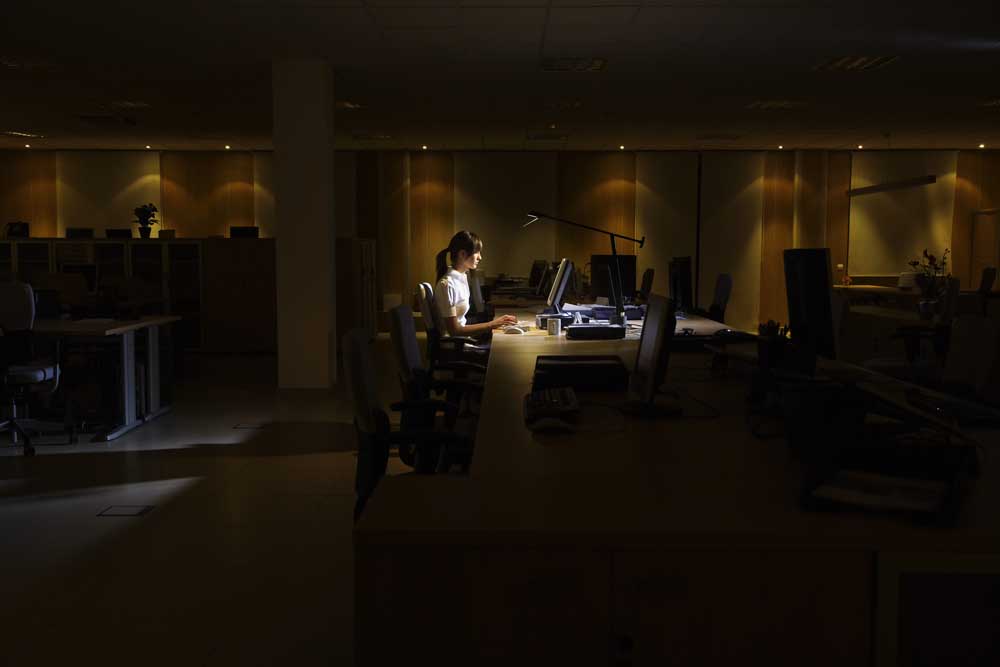I didn’t need to use drugs because my bloodstream was manufacturing my own crystal meth.
- How can you tell if you are a workaholic?
- How do we distinguish workaholism from “hard work?”
In his book, “Chained to the Desk,” Bryan Robinson describes workaholism as “an obsessive-compulsive disorder that manifests itself through self-imposed demands, an inability to regulate work habits, and an over-indulgence in work to the exclusion of most other life activities.”
How is a person diagnosed as a workaholic? Actually, workaholism is NOT a recognized mental health diagnosis in diagnostic manuals, though it might be a symptom of something bigger at play, as Dr. Robinson suggests. The urge to overwork can feel compulsive and anxiety provoking. A person with workaholism might not be able to clock-out mentally, even when they’d like to. It is a brand of achievement-oriented perfectionism, mixed with some rigidity, anxiety, and preoccupied thoughts.
The following is a checklist from Workaholics Anonymous (WA), useful for assessing workaholism.
- Do you get more excited about your work than about family or anything else?
- Are there times when you can charge through your work and other times when you can’t?
- Do you take work with you to bed? On weekends? On vacation?
- Is work the activity you like to do best and talk about most?
- Do you work more than 40 hours a week?
- Do you turn your hobbies into money-making ventures?
- Do you take complete responsibility for the outcome of your work efforts?
- Have your family or friends given up expecting you on time?
- Do you take on extra work because you are concerned that it won’t otherwise get done?
- Do you underestimate how long a project will take and then rush to complete it?
- Do you believe that it is okay to work long hours if you love what you are doing?
- Do you get impatient with people who have other priorities besides work?
- Are you afraid that if you don’t work hard you will lose your job or be a failure?
- Is the future a constant worry for you even when things are going very well?
- Do you do things energetically and competitively including play?
- Do you get irritated when people ask you to stop doing your work in order to do something else?
- Have your long hours hurt your family or other relationships?
- Do you think about your work while driving, falling asleep or when others are talking?
- Do you work or read during meals?
- Do you believe that more money will solve the other problems in your life?
Did you answer “yes” to 3 or more questions? According to Workaholics Anonymous, a person can be considered workaholic if they answer affirmatively to three or more of the questions.
Is work addiction really that dangerous?
In Japan alone, thousands people die annually from karoshi (“death by overwork”). Over-work affects people holistically. Physically, they may experience ulcers, chest pain, heart attacks, asthmatic attacks, or urges to binge eat. Psychologically, workaholism has been connected to depression, anxiety, perfectionism, stress, anger, burnout, low self-worth and low self-esteem. Socially, workaholics may be isolated from friends, family, or co-workers. In addition, their behavior can potentially lead to marital discord, divorce, or job loss. Children of workaholics are negatively affected too; research indicates that adult children of workaholics are at higher risk for depression, anxiety, and feelings of low self-worth.
What happens in the workaholic brain? Work addiction alters the physiological and chemical nature of the brain. Workaholics attain an adrenaline high from binge-working. After the high, the person is left with a “work hangover,” which may involve heightened anxiety, irritability, or suicidal ideation. Akin to substance use disorders, workaholics often experience cognitive distortions that complicate their adrenaline addiction.
How is workaholism different from hard work?
The big distinctions are balance and boundaries. In order to have a balanced life, a person must be engage in healthy relationships, maintain outside interests and hobbies, and demonstrate overall self-care (ex. Slowing, family time, adequate sleep, etc.). Boundaries allow a person to distinguish their work life from their home life and social life and so forth.
Thomas Merton, in his book “Conjectures of a Guilty Bystander” described workaholism and its threat to inner peace:
“There is a pervasive form of contemporary violence to which the idealist most easily succumbs: activism and overwork. The rush and pressure of modern life are a form, perhaps the most common form, of its innate violence. To allow oneself to be carried away by a multitude of conflicting concerns, to surrender to too many demands, to commit oneself to too many projects, to want to help everyone in everything, is to succumb to violence. The frenzy of our activism neutralizes our work for peace. It destroys our own inner capacity for peace. It destroys the fruitfulness of our own work, because it kills the root of inner wisdom which makes work fruitful.”
If you are feeling burned out from over-work and are ready to begin a journey toward recovery, a counselor at Star Meadow Counseling might be able to help.
References:
Healthyplace.com. (2018). Work Addiction Treatment | HealthyPlace. [online] Available at: http://www.healthyplace.com/addictions/work-addiction/treatment-workaholic/menu-id-54/ [Accessed 18 Sep. 2018].
Merton, T. (2014). Conjectures of a guilty bystander. Garden City, N.Y.: Image Books.
Robinson, B. (2014). Chained to the Desk. 3rd ed. NYU Press.
The Japan Times. (2018). The government’s ‘karoshi’ report | The Japan Times. [online] Available at: https://www.japantimes.co.jp/opinion/2016/10/12/editorials/governments-karoshi-report/#.W6GQkehKiUk [Accessed 18 Sep. 2018].
Treatment4addiction.com. (2018). Work Addiction. [online] Available at: http://www.treatment4addiction.com/addiction/behavioral/work/ [Accessed 18 Sep. 2018].
Workaholics-anonymous.org. (2018). Home. [online] Available at: http://workaholics-anonymous.org/ [Accessed 18 Sep. 2018].

